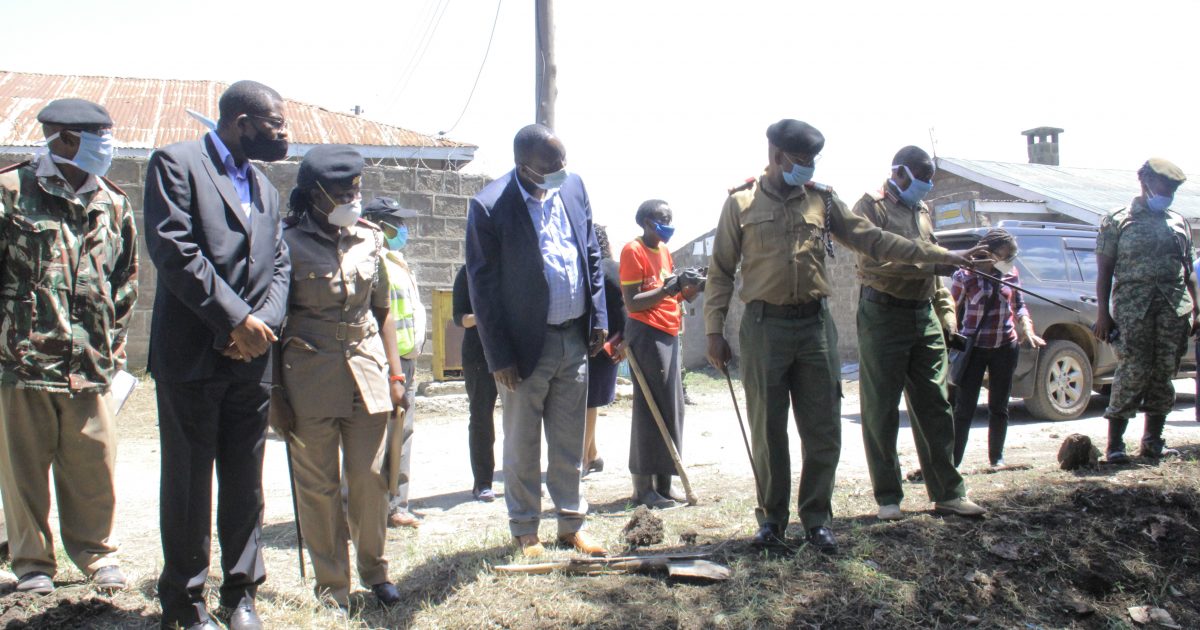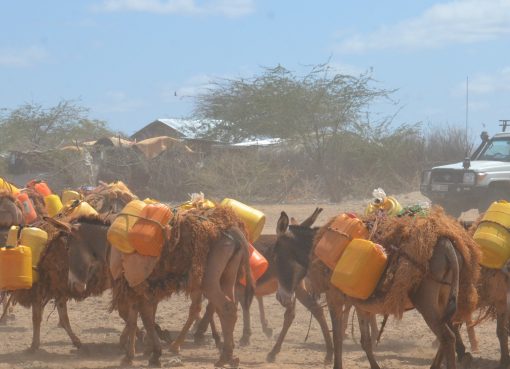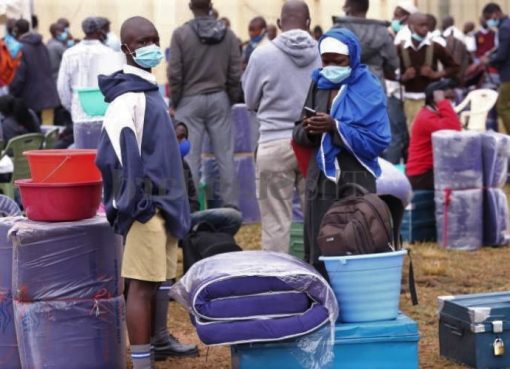

As Kenya faces one of its toughest battles since independence against the Corona virus pandemic, which threatens to destroy the economy and way of life, the spirit of togetherness, hard work and resilience lives on in low income settlements within Nakuru as scores of youth clean up roads, unclog trenches and clear bushes.
Though the normal routines of life have been endangered and the very fabric of Kenyan families shaken after the virus was reported in the country in March, one thing that is certain, however, is that the National Hygiene Program (NHS) dubbed Kazi Mtaani is changing the sprawling Kaptembwa, Lake View and London slums.
The program is one of the National government’s initiatives to cushion the youth and vulnerable persons across Kenya against adverse economic effects of the Covid-19 pandemic that besides guaranteeing them income targets to make the environment healthier within slums and low-income settlements.
Kenya News Agency crew visited the areas and spoke to some of the residents who could not hide their joy over what they termed as a ‘new beginning and welcome transformation’ of the slums.
Although a lot remains to be done in the extensive slums whose populations are rated as among the highest in the county, 68-year-old Beatrice Wanjiku, a member of
from London says at least the high numbers of unemployed youth are now engaged in some productive activities.
“We are experiencing low crime rates lately. I feel the environment is favourable even for our children. You can feel the fresh air now after clogged drainages were unblocked. This year incidences of flooding in this estate have reduced drastically as waterways are now clear,” said Wanjiku who is tasked with supervising a team of the youth in the program.
2,200 residents in Nakuru have been recruited into the National Hygiene Program since President Uhuru Kenyatta launched it last month. The first phase of the programme has absorbed 26,148 youth on a pilot basis in eight counties across the country.
While inspecting the Kazi Mtaani activities in Nakuru, the Principal Administrative Secretary for Interior (PAS), Kang’ethe Thuku said the second phase of the programme will be rolled out nationwide within a month and will bring on board more than 200,000 youth.
Thuku however, said the Kazi Mtaani initiative had now been extended to Naivasha Sub-County to cushion scores of workers who lost their livelihoods following the closure of several horticultural firms and to Eastleigh in Nairobi and Old Town in Mombasa after they were confirmed to be hot spots of Covid-19.
“The initiative was rolled out on pilot basis in counties where job cuts and losses were drastically witnessed following the outbreak of the virus. Most of these counties are hubs for tourism, horticulture and agriculture, which employ the bulk of unskilled Kenyan workforce.
The National Hygiene Program also targets youth working in the informal sector such as artisans, hawkers, casual labourers among others whose livelihoods have been disrupted due to effects of coronavirus which has slowed down economic activities,” noted Thuku.
Twenty two-year-old Wanjiku Ngugi, a resident of London Estate is a student at the Rift Valley Institute of Science and Technology (RVIST) working among the youth and says she is now able to keep herself busy and buy reading material from the Sh616 she receives daily after joining the government-funded project.
Wanjiku observed that most informal settlements in Nakuru now boast of higher hygienic standards as the youth working under the National Hygiene Program have been organized into units that collect garbage, clear bushes, unclog drainages, and clean access paths and streets.
“As corona continues to rain pain and suffering upon our unprotected heads many college and university students who are at home need money to feed and buy clothes. Others want to buy books. I have colleagues here who I know if left idle may engage in undesirable activities. …I appeal to the Government to extend the programme. We have benefited a lot,” said Wanjiku.
Most of the residents in the three informal settlements were however quick to call on the County government of Nakuru to collect and dispose off vegetation and grass and silt, plastic waste and fabrics retrieved from drainages.
“This is a very noble undertaking that has made our dwelling place habitable. The County Government should however deploy its staff to collect the dirt that our youth have cleared from bushes and drainages,” stated Julius Oyoo an elder from Lake View.
Adams Kiprono who resides in Lake View wants the government to expand the program, bring in more youth and extend its period. The project he said is changing the lives of once idle youth and transforming the face of the slum.
“Crime rates have drastically reduced in Lake View following the massive recruitment of the youth in the program. I know some of the people who before they joined this initiative were hustling and, because they had no income, had turned to illegal means such as mugging.
It has also come with social relief by providing jobs and facilitating hygiene interventions to help contain the Covid-19 pandemic in informal urban settlements,” Kiprono said.
Richard Mukhwana, who owns residential property in Kaptembwa, and a beneficiary of the projects, says access to his property has now improved after the youth unclogged drainages which drained away storm water that had pooled outside his home.
“We are now enjoying a cleaner and healthier environment that for a long time was nonexistent here. I hope these services will help this community which for a long time has been putting up with dirty surroundings,” observed Mukhwana
The Interior PAS said stringent measures had been put in place to ensure transparency in implementation of the Sh.300 million first phase of Kazi Mtaani Program and that only deserving youth are hired.
He said expenditure of funds disbursed and the process of hiring the youth to be engaged is being subjected to continued open and thorough scrutiny and auditing.
“Chiefs and their assistants are under firm instructions to ensure that Nyumba Kumi clusters only forward names of genuine cases for consideration into the program. We will not condone corruption and nepotism in hiring youth into the NHP program,” warned Thuku.
By Anne Mwale





